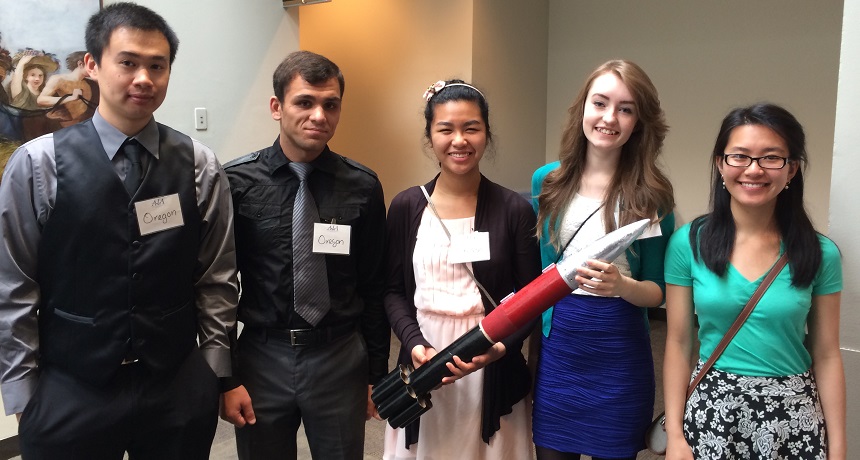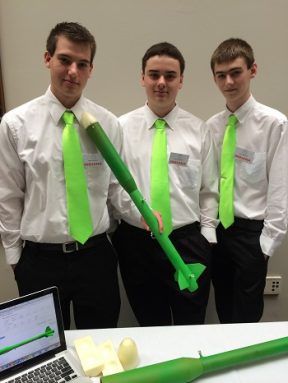Rocket competition a blast for young scientists
Students compete in the nation’s capital to build the best rocket

Teens from David Douglas High School in Portland, Ore., show off their rocket at the national competition of the Team America Rocketry Challenge. From left to right: Kevin Lai, 18, Denis Russu, 18, Kathy Thach, 17, Sarah Cook, 17, Mink Nguyen, 17.
B. Brookshire/SSP
